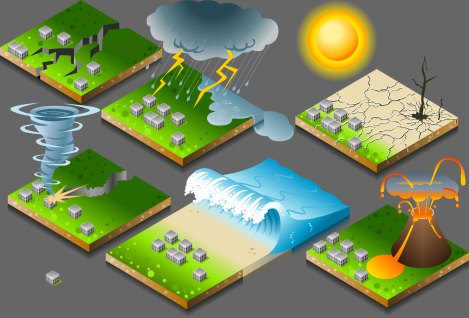Employee Emergency Information


What is the BSEE and BOEM employee Emergency Information Hotline number for inclement weather, government shut downs, etc.?
Bookmark this page: it will contain important information relating to emergency operations and return-to-duty instructions for BOEM and BSEE employees. Links to additional emergency-related services will also be located here as necessary.
10 Ways You Can Be Prepared
1. Identify Your Risk - What are the hazards where you live or work? Find out what natural or human caused disasters pose a risk for you.
- Do you live near a flood plain, an earthquake fault, an area prone to hurricanes, or in a high fire danger area?
- Are you prepared for an unexpected human-made disaster that can strike at any time?
- Does your neighborhood or community have a disaster plan?
2. Create A Family Disaster Plan - Your family needs a plan that tells everyone:
- Where to meet if you have to evacuate.
- Who you've identified as an out-of-state "family contact".
- How to get emergency information in your community.
3. Practice Your Disaster Plan - After you and your family have developed your disaster plan - practice it.
- After you and your family have developed your disaster plan - practice it.
- Start by having family members meet at a designated spot outside your home - like you would after a fire or after the shaking stops.
- Know how to respond in the event of any disaster - whether to stay indoors or evacuate your neighborhood by car.
- If your family needs to evacuate, know the proper evacuation procedures and routes as determined by your local community/county Office of Emergency Management.
4. Build a Disaster Supply Kit for Your Home - If you are stranded in your car or have to be self-sufficient at home until help arrives, you need to have a disaster kit with you.
5. Prepare Your Children - Talk to your children about the risks involved and what your family will do if disaster strikes.
6. Don't Forget Those with Special Needs - Infants, seniors and those with special needs must not be forgotten.
- Make sure that supplies for your infant are in your kit and that you have items such as medications, oxygen tank, or other medical supplies that seniors or those with special needs may require. See the attached PDF for "Tips for preparing the Elderly".
7. Assemble a Pet Emergency Kit - Your pets can't fend for themselves and are especially vulnerable during emergencies.
8. Don't forget, technology can be a helpful tool during a disaster - Be Ready Using Disaster Preparedness Apps, Texts, and Technology!
- Phone lines may be congested after a storm, so update your social networks or text family/friends to say you're OK. Today's technology makes it even easier to stay prepared before, during, and after a disaster or emergency event. Download these apps and resources today to ensure you stay prepared during the next emergency or disaster event!
- Download the FEMA App to access disaster preparedness tips, build a personal emergency kit, and look for open Disaster Recovery Centers along with open shelters (if you're a disaster survivor).
- Local emergency management officials often have notification systems. Opt-In to a distribution for your community. To find out if your community offers such services, contact your local office of Emergency Management.
- Sign up to receive a monthly preparedness tip from FEMA's text messages program.
9. Learn CPR and First Aid - Contact your local chapter of the American Red Cross today and get trained on basic first aid and CPR. Your training could save the life of a loved one or neighbor following a disaster.
10. Get Involved: Volunteer - Donate blood, join a local Community Emergency Response Team (CERT), educate your neighbor, or volunteer with your local American Red Cross.
Below are links with helpful information that will help you be better prepared for any disaster, specific to your region/area.
- Albuquerque, NM
- Anchorage, AK
- Camarillo, CA
- Denver, CO
- Houma, LA
- Houston, TX
- Lafayette, LA
- Lake Charles, LA
- Lake Jackson, TX
- New Orleans, LA
- Washington DC Metropolitan Area
- DC
- Maryland
- Virginia